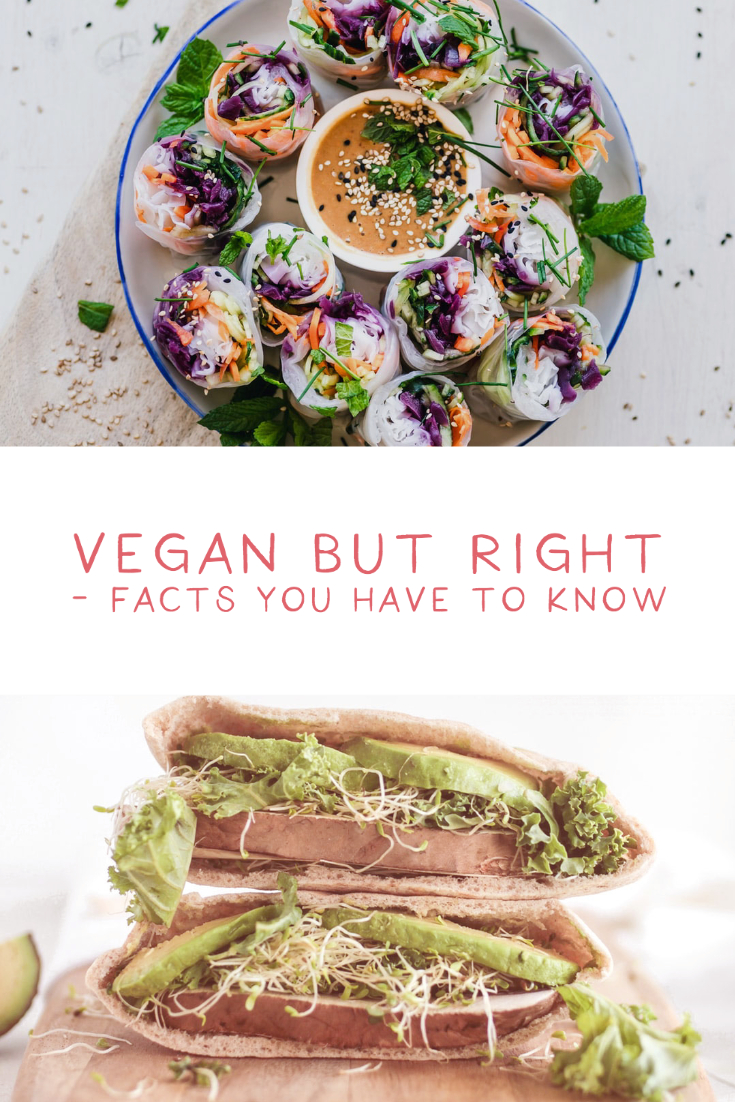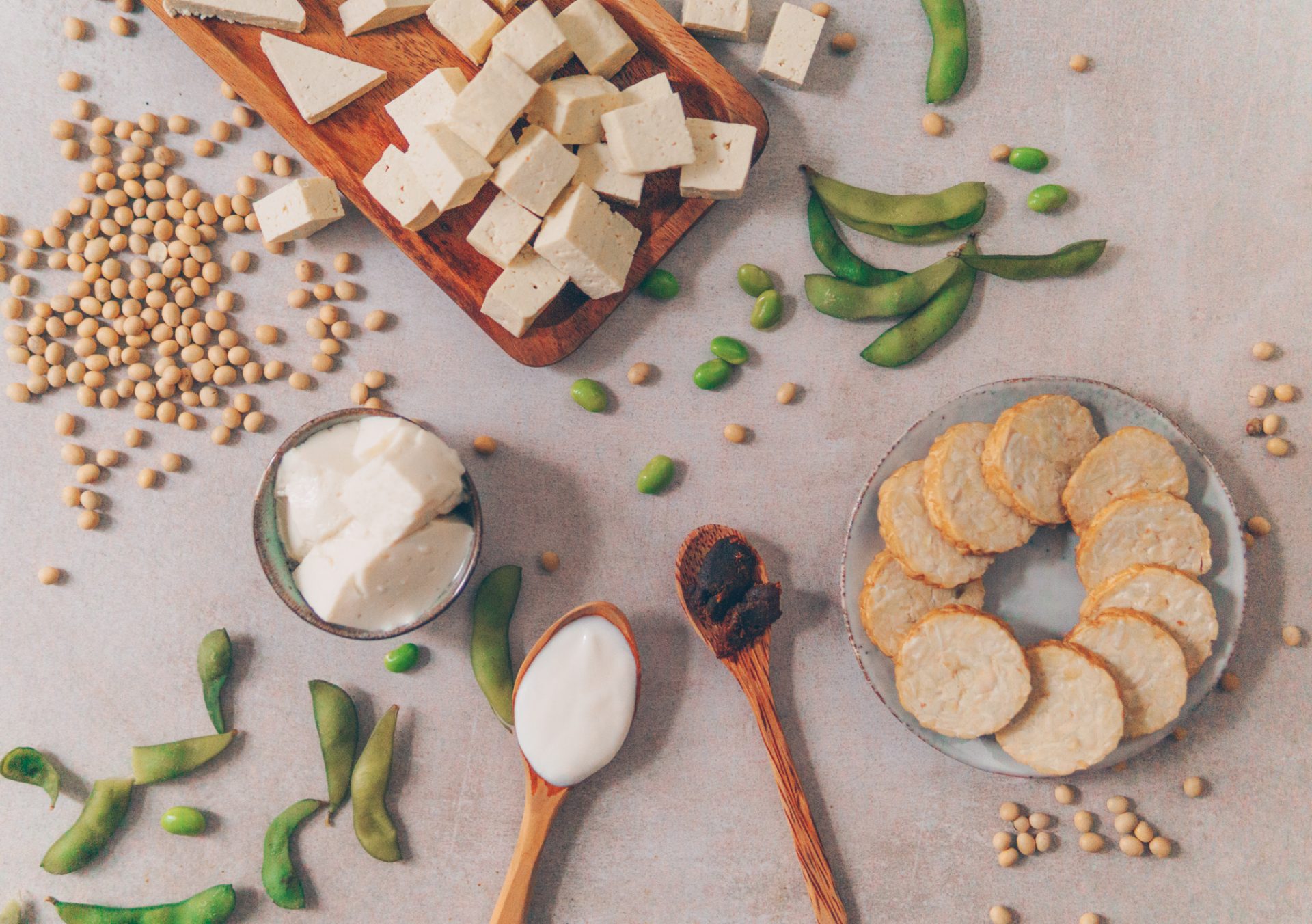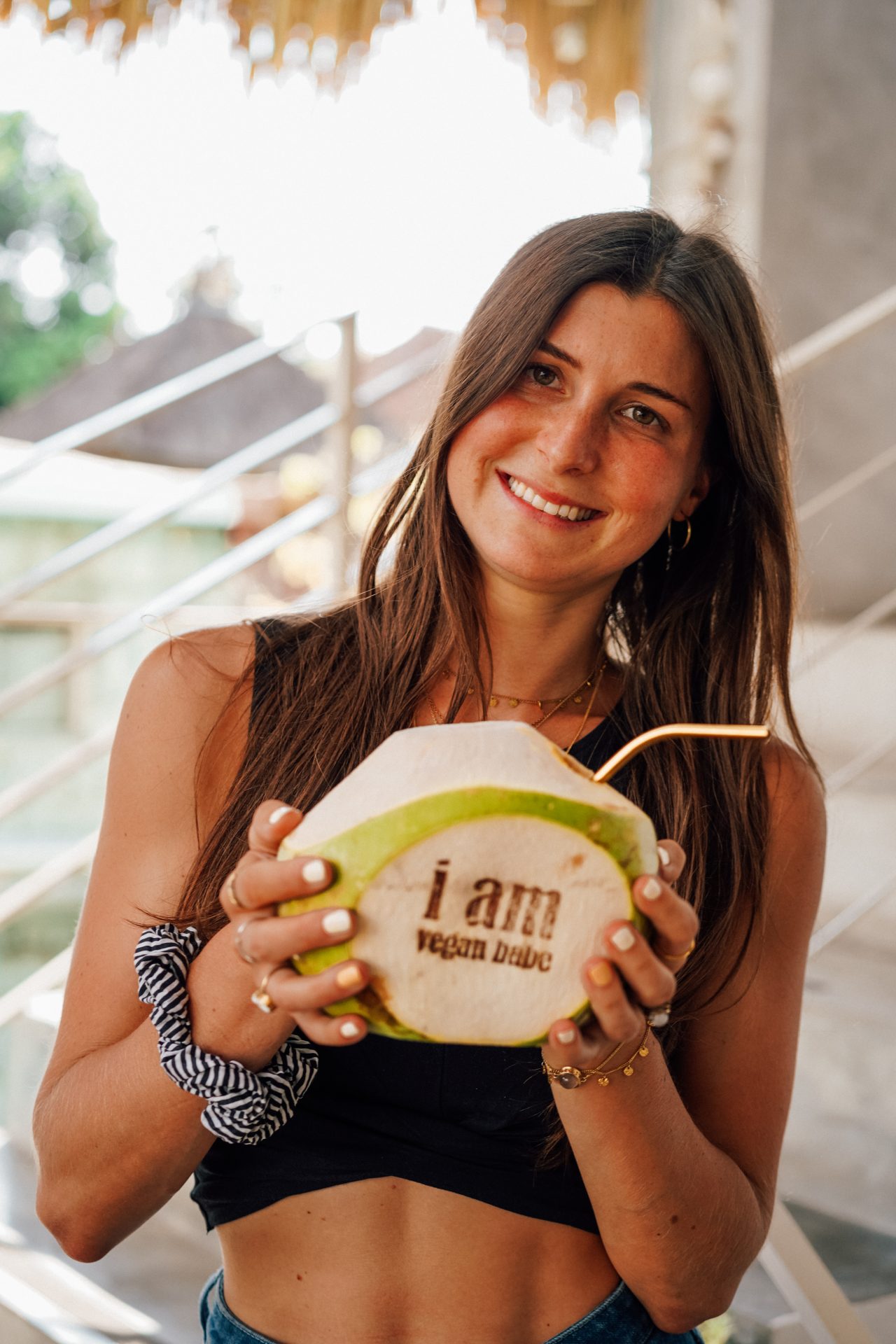Do you often feel overwhelmed by the flood of information about nutrition? Do you ask yourself whether a vegan diet is really healthy, you can eat soy without worries and what you should supplement? Do you often have stomach aches or other symptoms that you cannot explain and are wondering how an optimal diet really looks like? I’ll help you to learn how to be vegan the right way.

How to be vegan the right way
If you are reading this now, you are obviously concerned about your diet, maybe you are eating a plant-based or you are interested in changing your diet towards it. Every day, I receive countless questions from you about this on Instagram, showing me that many of you feel overwhelmed and also how many rumors are circulating about the vegan diet.
If you are just in the infancy of your dietary change or have succeeded the #Veganuary2020 for a month, it can be said: especially when eating vegan food for one month, not everything has to be perfect! With a long-term vegan diet, however, there are some things that we should have a closer look at. For example, it is important to know that our food-industry is not yet perfectly fitting to a vegan diet.
Veganism is the answer to the barbaric industrial animal husbandry. But the great thing is that vegan food is healthy and nutritionally very valuable, too.
Is there a perfect diet?
Please be aware that it´s not important to eat “perfect” every single day! A change in diet should be less about foods and nutrients individually and more about nutritional habits. Also, not every day should be seen separately. Exceptions are fine. Combining different foods together has a huge impact on their effect and consequently should not be considered in isolation.
as an example: that´s what a diet plan of my podcast guest Niko Rittenau looks like:
- Breakfast: Protein-rich carbohydrates with healthy fats, e.g. porridge with fruit, seeds, and plant milk
- Lunch: Vegetable pan with a starch garnish
- Dinner: leftovers from lunch
Digestive problems as a vegan*in:
Many vegans give up their vegan diet (e.g. Bonny Rebecca) because they complain about digestive problems that they blame the vegan diet for.
Digestive problems often occur when very extreme forms of dieting (in this case anorexia), which eventually throws the body out of its balance. This can lead to a miscolonasation in the gut, which has serious consequences. It makes it very difficult for the gut to regain its balance.
Critical nutrients in the vegan diet:
Especially in a plant-based diet, it makes sense to check “critical nutrients” on a regular basis. If we eat animal products, the risk of having a deficiency is lower as the animals are usually injected or fed vitamins. We, therefore, ingest them indirectly.
Critical nutrients that we can test for are for example B12 (trans-cobalamin) and Omega 3 (25-OHD) or simply supplement them directly.
I supplement for example vitamin B12 and omega 3 in the form of microalgae oil daily. With Omega 3, I make sure that I take it in combination with food means before or after eating. This increases its absorption. In winter, I also take vitamin D3 (25-OHD), because we need sunlight to build Vitamin D in our body. This is not absolutely necessary, but it improves the basic mood and some other processes in our body. I take a vitamin D3 complex because our intake is increased by K2. *With my Code ANNELINA10, you’ll get 10% off of your first order at Vivo. For the first purchase, I’d recommend a bigger one since this code does only work ones :/. (AFFILIATE!)
Overall, vitamin A should be given more attention. A vitamin A deficiency can lead, in rare cases, to blindness. Directly absorbable, it can only be found in animal products. It can, however, be converted into vitamin A from precursors that are abundant in plants. How functional the converting enzymes depend on our genetic profile. There is a very small group of people who do not have any of these functional enzymes at all and can get a vitamin A deficiency on a plant-based diet. This is very rare, but when it happens, it is really not funny! By taking a blood test you can quickly determine whether you should supplement vitamin A or not.

The soy controversy:
The origin of the criticism of soy and soy products lies with a company that positions itself as anti-vegan. They claimed that isoflavones (phytoestrogens of the soy plant) can mess up our hormones. However, the same company recommends fermented products, although the process of fermentation increases the content of phytoestrogens. So this makes absolutely no sense. Studies even show that soy can reduce the risk of breast cancer and other cancers.
Genetically modified soy must be labeled in Europe and only enters the products through cross-contamination. In animal food, the contamination does not have to be labeled, which is why we consume genetically modified food often indirectly that has been fed to animals.
3 tips to be vegan the right way:
- with a 30-day course you can break up the flood of information into chunks
- small steps also mean progress!
- try out new foods and recipes and meet people with the same interests!
You can get more information on that from Niko Rittenau in his book “Vegan Klischee Ade”.




Leave a Reply